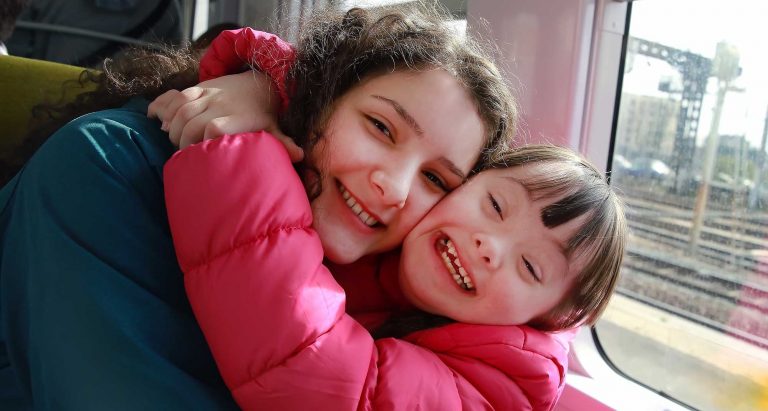FAQs
Below are some of the most commonly asked questions in relation to fostering which we hope you will find helpful. If you still have a question that is not answered below, please get in touch and our fostering advisor will be happy to help.
What is the difference between an independent or non-statutory foster care agency and fostering for Tusla?
Tusla is the State agency responsible for the welfare and protection of all children. FFI is a social enterprise established in 2005 to work in partnership with Tusla to provide fostering placements.
We recruit, assess and train foster carers who, once approved, are supported by a team of therapists, education officers, support workers and social workers.
Who can apply to be a foster carer?
FFI welcome diversity in all of our foster families. Our carers come from all backgrounds, cultures and religions. It does not matter if you are single, married or in a same sex relationship providing you can meet the following criteria:
- You have a spare bedroom
- You are over the age of 25
- You have a full driving licence
- If you are fostering as a couple, you have been in your relationship for at least 3 years and been living together at least one year
- You have flexibility within your working arrangements
Will a previous criminal conviction prevent me from fostering?
Not necessarily it depends on the nature of the conviction and when it occurred. We carry out Garda vetting as part of our application process, so we would advise you to disclose any convictions as soon as possible so we can discuss with you whether it will affect your application. All information you share will remain confidential.
What sort of checks will be carried out?
FFI is required to carry out a number of checks in order to comply with national policy and legislation. These include:
- Garda vetting checks
- Overseas police clearance (required for those who have lived abroad for periods of 6 months)
- Tusla child protection checks
- Medical assessment by your GP
- Employment references
- School references
- Overseas child protection checks (required for those who have lived abroad for periods of 6 months)
- Financial stability checks
- A standard safety check on your home
If I am going to be the main foster carer, do you need to carry out checks on my partner?
All couples living together are partners in fostering, so both of you will need to complete the required checks and take part in the assessment process. We are also required to carry out Garda vetting on any of your own children over the age of 16.
Can a child I foster share a bedroom with one of my own children?
FFI will only place a child in a home where he or she will have their own bedroom.
Can I still go out to work and be a foster carer?
It is possible for you to continue working providing there is flexibility within the role. This will depend on your individual circumstances and will need to be discussed with one of our fostering advisors.
Can I choose how long I want children and young people to stay with me?
During the assessment process, we will discuss what type of fostering will suit you best. It is not always possible to know exactly how long a child will stay with you, but your Link Social Worker will keep you updated as much as they can.
Can I choose which age group or sex I would prefer to foster?
The majority of the children referred to us are over the age of ten and a higher proportion of them are boys than girls. The main priority for FFI is to ensure that any child placed is suitably matched within your family and taking into account your experience and skills.
How much will I know about the child or young person before they are placed with me?
Every effort is made to give you as much information about the young person as possible. Your Link Social Worker will discuss any potential placement with you, including any possible challenging behaviour and how to manage it. On occasion FFI receive very little information about the child, especially when an emergency placement is required. FFI will always seek to find out as much as we can as quickly as possible.
Who is responsible for taking the children to school and to the doctor, etc?
As a foster carer, you have responsibility for these day-to-day tasks, as the children in placement with you are now part of your family.
Can I physically discipline a child?
The Children First Act 2012, removed the common law defence of reasonable chastisement in relation to corporal punishment. Therefore it is now a criminal offence to use any form of physical chastisement against a child. This includes any form of smacking, slapping or shaking.
We provide training to all our carers on alternative and effective ways to cope with difficult behaviour.
Do I get extra help if I care for a child with special needs or a disability?
Fostering a child with disabilities or medical needs can be challenging, which is why we will give you the training and support you need and ensure that any specialist equipment required to care for them is provided.
What payments and allowances will I receive?
The fostering allowance for children placed with FFI is currently €352 per week, per child. Some children have more challenging needs and requirements than others, so enhanced payments can be requested from Tusla for certain types of placements.
What does the allowance cover?
The foster care allowance is in respect of, and for the benefit of the foster child and therefore must be used to meet the day to day costs associated with looking after a foster child. It is not a payment or salary to foster carers. The weekly allowance is intended to cover living costs such as food, clothes, school books, basic travel and household bills.
Will I be taxed on this income?
The allowances you receive when fostering with us are exempt from taxation under the Finance Bill 2005. This also means that the money you receive is not usually classed as income when applying for certain benefits. However, we recommend that you consult with the Department of Social Protection for confirmation on this.
Once I am approved, how long will I have to wait for my first placement?
The time between getting approved and having your first placement varies from person to person. Following approval by the Tusla Foster Care Committee, you will begin having conversations with your Link Social Worker about possible placements. Some people get placement within a few days while others are waiting a few weeks for a well matched placement. We will discuss any referrals of children who may be a suitable fit based on your skills and experience and the individual needs of the child.


